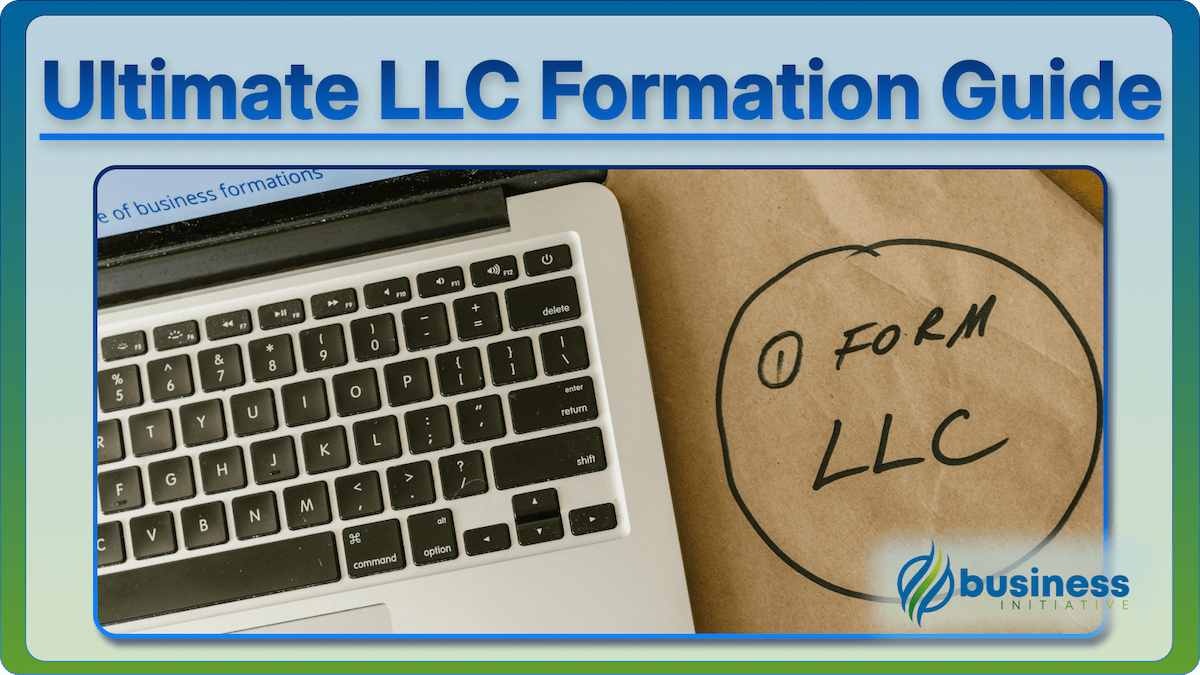You’re trying every channel, hoping something works. You spread budget across many channels, but nothing performs well. This spray-and-pray approach wastes budget on ineffective channels while preventing focus on what works.
Focused acquisition strategy solves this by narrowing to proven channels. It concentrates budget on channels that work, which helps you improve efficiency and scale what’s proven. This focus is essential for efficient acquisition.
This guide provides a strategic approach to narrowing efforts to a few proven channels, helping you move from scattered acquisition to focused strategy.
We’ll explore why focus matters, how to identify winners, narrowing strategies, building focus, and scaling focused channels. By the end, you’ll understand how to build a focused acquisition strategy.
 Key Takeaways
Key Takeaways
- Identify winners—find channels that show promise through testing and measurement
- Narrow to proven—focus budget on 2-3 channels that work instead of many that don't
- Cut losers—eliminate channels that don't perform to free budget for winners
- Build focus—concentrate effort and budget on proven channels
- Scale what works—grow proven channels instead of trying new untested ones
 Table of Contents
Table of Contents

Why Focus Matters
Spray-and-pray wastes budget on ineffective channels. You spread money across many channels, but none perform well because you can’t optimize any of them. This scattering prevents focus and efficiency.
Focus matters because it enables optimization. When you concentrate budget on proven channels, you can optimize and scale them. This concentration improves efficiency and results.
The reality: Most businesses spread budget too thin across too many channels, which prevents optimization. Focused strategy concentrates on proven channels, which improves efficiency and results.
Identifying Winners
Winner identification finds channels that show promise. When you identify winners through testing and measurement, you can focus on what works.
Performance Metrics
Measure channel performance:
- Calculate CAC by channel
- Measure conversion rates
- Track customer quality
- Assess channel efficiency
- Identify top performers
Why this matters: Performance metrics show winners. If channels have low CAC and high conversion, they’re winners. This measurement helps you identify channels to focus on.
Consistency Indicators
Look for consistent performance:
- Channels that perform consistently
- Stable CAC over time
- Reliable conversion rates
- Predictable results
- Consistent winners
Why this matters: Consistency indicates reliability. If channels perform consistently, they’re reliable winners. This consistency helps you identify channels you can depend on.
Scalability Signals
Assess scaling potential:
- Channels that can scale
- Room to increase budget
- Potential for growth
- Scalable winners
- Channels worth focusing on
Why this matters: Scalability signals show potential. If channels can scale, they’re worth focusing on. This assessment helps you identify channels with growth potential.
Quality Indicators
Measure customer quality:
- Customer lifetime value by channel
- Retention rates by channel
- Customer satisfaction
- Quality winners
- Channels that attract good customers
Why this matters: Quality indicators show value. If channels attract high-quality customers, they’re winners. This measurement helps you identify channels that provide long-term value.
Pro tip: Use our Customer Acquisition Cost Calculator to measure channel performance. Calculate CAC for each channel and compare. Focus on channels with lowest CAC and highest customer quality. This measurement helps you identify winners.

Narrowing Strategies
Narrowing strategies help you focus on proven channels. When you narrow to winners, you improve efficiency and results.
Cut Bottom Performers
Eliminate worst channels:
- Identify channels with highest CAC
- Cut channels with lowest conversion
- Eliminate inconsistent performers
- Remove bottom performers
- Free budget for winners
Why this matters: Cutting bottom performers frees budget. If you eliminate worst channels, you free budget for winners. This cutting helps you focus on what works.
Consolidate Similar Channels
Combine related channels:
- Group similar channels together
- Focus on best in each category
- Consolidate to reduce complexity
- Simplify channel mix
- Focus on category winners
Why this matters: Consolidating reduces complexity. If you combine similar channels, you simplify and focus. This consolidation helps you build focused strategy.
Focus on Top 2-3
Narrow to proven winners:
- Identify top 2-3 channels
- Focus budget on these channels
- Eliminate or reduce others
- Build focus on winners
- Concentrate effort
Why this matters: Focusing on top 2-3 builds concentration. If you narrow to proven winners, you can optimize and scale them. This focus improves efficiency and results.
Gradual Narrowing
Reduce channels over time:
- Gradually reduce channel count
- Cut one channel at a time
- Monitor impact of reductions
- Narrow gradually
- Build focus incrementally
Why this matters: Gradual narrowing reduces risk. If you narrow gradually, you can monitor impact and adjust. This approach helps you build focus safely.
Building Focus
Building focus concentrates effort on proven channels. When you build focus, you optimize and scale what works.
Budget Concentration
Concentrate budget on winners:
- Allocate more budget to proven channels
- Reduce budget for other channels
- Focus spending on winners
- Maximize investment in proven
- Build budget focus
Why this matters: Budget concentration maximizes impact. If you concentrate budget on winners, you maximize results. This concentration helps you build focus effectively.
Effort Concentration
Focus team effort:
- Assign team to proven channels
- Focus optimization efforts
- Concentrate learning and improvement
- Build expertise in focused channels
- Maximize effort impact
Why this matters: Effort concentration improves results. If you focus team effort on proven channels, you improve performance. This concentration helps you build expertise and results.
Optimization Focus
Optimize focused channels:
- Deep optimization of proven channels
- Test and improve continuously
- Build expertise in channels
- Maximize channel performance
- Focus optimization efforts
Why this matters: Optimization focus improves performance. If you optimize focused channels deeply, you improve results. This focus helps you maximize channel value.
Learning Focus
Learn from focused channels:
- Deep understanding of proven channels
- Learn what works and why
- Build knowledge in focused channels
- Apply learnings to improve
- Focus learning efforts
Why this matters: Learning focus builds expertise. If you learn deeply about focused channels, you build expertise. This learning helps you improve performance over time.

Scaling Focused Channels
Scaling focused channels grows proven channels. When you scale what works, you maximize results from focused strategy.
Incremental Scaling
Scale gradually:
- Increase budget gradually
- Scale in increments
- Monitor performance as you scale
- Scale carefully
- Build scale safely
Why this matters: Incremental scaling reduces risk. If you scale gradually, you can monitor impact and adjust. This scaling helps you grow safely.
Performance Monitoring
Track performance as you scale:
- Monitor CAC as budget increases
- Track conversion rates
- Measure customer quality
- Ensure performance maintained
- Monitor scaling impact
Why this matters: Performance monitoring ensures quality. If you monitor performance as you scale, you can ensure quality maintained. This monitoring helps you scale effectively.
Optimization While Scaling
Continue optimizing:
- Optimize as you scale
- Test improvements continuously
- Improve performance while growing
- Maintain optimization focus
- Scale and optimize together
Why this matters: Optimization while scaling improves results. If you optimize as you scale, you improve performance. This optimization helps you maximize scaling value.
Scaling Limits
Know when to stop scaling:
- Identify scaling limits
- Recognize when efficiency declines
- Stop scaling when performance drops
- Maintain efficiency
- Scale within limits
Why this matters: Scaling limits prevent waste. If you know when to stop scaling, you prevent efficiency decline. This awareness helps you scale effectively.
Pro tip: Scale focused channels by 20-30% at a time and monitor performance. If CAC stays low and quality maintained, scale more. If performance declines, stop scaling and optimize. This approach helps you scale safely and effectively.
Your Next Steps
Focused acquisition strategy improves efficiency. Identify winning channels, narrow to proven ones, build focus, then scale what works to maximize results.
This Week:
- Calculate CAC and measure performance for all channels
- Identify top 2-3 performing channels
- Assess which channels to cut or reduce
- Plan budget reallocation to winners
This Month:
- Cut or reduce bottom-performing channels
- Concentrate budget on top 2-3 channels
- Focus optimization efforts on proven channels
- Monitor performance of focused strategy
Going Forward:
- Maintain focus on proven channels
- Scale focused channels incrementally
- Continue optimizing focused channels
- Resist temptation to add new untested channels
Need help? Check out our Customer Acquisition Cost Calculator for measuring channel performance, our CAC calculation guide for accurate measurement, our channel fit guide for choosing channels, and our channel scaling guide for growing proven channels.
Stay informed about business strategies and tools by following us on X (Twitter) and signing up for The Initiative Newsletter.
FAQs - Frequently Asked Questions About From Spray-and-Pray to Precision: Building a Focused Acquisition Strategy

What is a spray-and-pray acquisition strategy and why doesn't it work?
Spray-and-pray means spreading your marketing budget across many channels hoping something works, which prevents optimization because no single channel gets enough investment to perform well.
Learn More...
Spray-and-pray is the common approach of trying every marketing channel simultaneously—social media, paid ads, content, email, events—with budget spread thin across all of them.
It fails because no channel receives enough budget or attention to be properly optimized. Without sufficient investment, you can't test, learn, and improve any single channel's performance.
The result is mediocre performance across many channels instead of strong performance in a few proven ones, wasting budget on channels that will never work for your business.
The solution is to shift to a focused acquisition strategy: identify your top 2-3 performing channels and concentrate resources there for optimization and scale.
How do I identify which acquisition channels are my winners?
Measure Customer Acquisition Cost (CAC) by channel, track conversion rates, assess consistency over time, and evaluate customer quality from each source.
Learn More...
Calculate CAC for each channel to see which ones acquire customers most efficiently. Low CAC combined with high conversion rates signals a winning channel.
Look for consistency—channels that perform reliably month over month are more dependable than those with sporadic results, even if the sporadic channel occasionally performs well.
Assess scalability by evaluating whether top channels can absorb more budget and still maintain performance. A winning channel that can't scale has limited value.
Measure customer quality by tracking lifetime value and retention rates by channel. A channel with slightly higher CAC but much higher lifetime value may actually be your best performer.
How many acquisition channels should I focus on after narrowing?
Focus on your top 2-3 proven channels. This concentrates enough budget and effort to optimize and scale them effectively.
Learn More...
Two to three channels is the sweet spot for most businesses—it provides enough diversification to reduce risk while keeping focus tight enough for meaningful optimization.
With 2-3 channels, you can assign dedicated team members, build deep expertise, run meaningful A/B tests, and achieve the budget concentration needed for results.
Resist the temptation to add new untested channels once you've narrowed. Every new channel dilutes focus from your proven winners.
If you must test a new channel, allocate a small experimental budget without reducing investment in your proven channels.
What is the best approach to cutting underperforming acquisition channels?
Use gradual narrowing—cut the worst performer first, monitor impact, then continue reducing until you're focused on your top 2-3 channels.
Learn More...
Start by identifying channels with the highest CAC and lowest conversion rates. These bottom performers are the first candidates for elimination.
Consolidate similar channels (for example, if you're on five social platforms, focus on the one or two that perform best) to reduce complexity.
Narrow gradually rather than cutting everything at once—remove one channel at a time and monitor the impact on overall performance before cutting the next.
Reallocate freed budget to your top performers immediately, so you see the benefit of focus rather than just reducing total spend.
How do I scale a focused acquisition channel without losing efficiency?
Increase budget by 20-30% at a time, monitor CAC and conversion rates as you scale, continue optimizing, and stop scaling if performance declines.
Learn More...
Scale incrementally—increase channel budget by 20-30% at a time rather than doubling overnight, which allows you to monitor whether performance holds at higher spend levels.
Track your key metrics (CAC, conversion rate, customer quality) closely as you scale. If CAC rises significantly or conversion drops, pause scaling and optimize before continuing.
Continue optimizing while scaling—test new creative, refine targeting, improve landing pages, and enhance conversion funnels alongside budget increases.
Know your channel's scaling limits. Every channel has a point of diminishing returns where additional spend no longer produces proportional results. Recognize this ceiling and maintain efficiency within it.
How do I avoid the temptation to go back to spray-and-pray after focusing?
Maintain discipline by tracking ROI data for your focused channels, resist shiny new channel pitches, and only test new options with small experimental budgets.
Learn More...
Keep your ROI data visible—when you can see that your focused channels generate strong returns, the temptation to scatter budget weakens.
When someone suggests a new channel, evaluate it against your current winners' performance. If it can't realistically match your best channel's CAC and conversion, it's not worth the distraction.
If you do want to experiment, allocate a small separate budget (5-10% of total) for testing new channels without reducing investment in proven ones.
Remember that focus creates compounding advantages—the longer you optimize a channel, the better you get at it, and the harder it becomes for competitors to match your efficiency there.
Sources & Additional Information
This guide provides general information about focused acquisition strategy. Your specific situation may require different considerations.
For CAC calculation, see our Customer Acquisition Cost Calculator.
Consult with professionals for advice specific to your situation.


